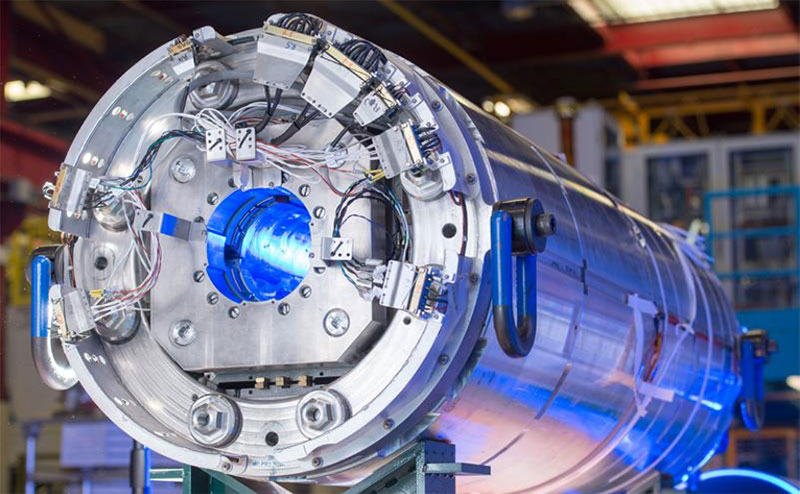
Berkeley Lab is part of a collaboration among several U.S. national laboratories that has been working on superconducting magnets (one is pictured here) integral to a planned high-luminosity upgrade for CERN’s Large Hadron Collider in Switzerland. (Credit: Reidar Hahn/Fermi National Accelerator Laboratory)
Foreign and Domestic Entity Restrictions
U.S export regulations, embargoes, and sanctions prohibit interactions with certain individuals, institutions, and countries (aka Restricted Parties ) for reasons having to do with national security or political sanctions. The lists of prohibited entities and countries are maintained by the U.S. Departments of Commerce, State, and Treasury .
Exchange of Technology Here and Abroad
Both physical exports abroad, and exchange of technical information within the US may require an export license depending on the technology and the foreign country involved.
Foreign Nexus
- Are you contemplating a research collaboration with non-US entities?
- Have you invited colleagues from a foreign entity to work with you here at LBNL?
- Does your research require you to travel to foreign destinations for any reason?
- Do you have proposals from foreign entities seeking access to LBNL user facilities?
When contemplating any activity with a “foreign nexus” (involving a foreign entity or destination), you must first confirm the following:
- Restricted Party Screening: The individual (including his/her affiliated institution), entity or country is not on the Commerce Entity List or OFAC’s sanctioned and embargoed country list. Contact your Division Export Liaison for assistance conducting such restricted party screening.
- Export Review: Even if the restricted party screening results are negative, you also need to confirm an export authorization is not necessary for the planned exchange of technology and/or services. Review all four of the following checklists to confirm you do not need Lab export clearance to proceed:
See Also: Foreign Visitors and Foreign Travel